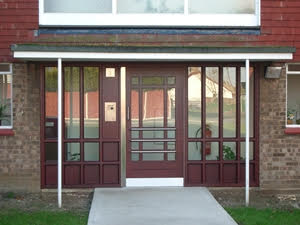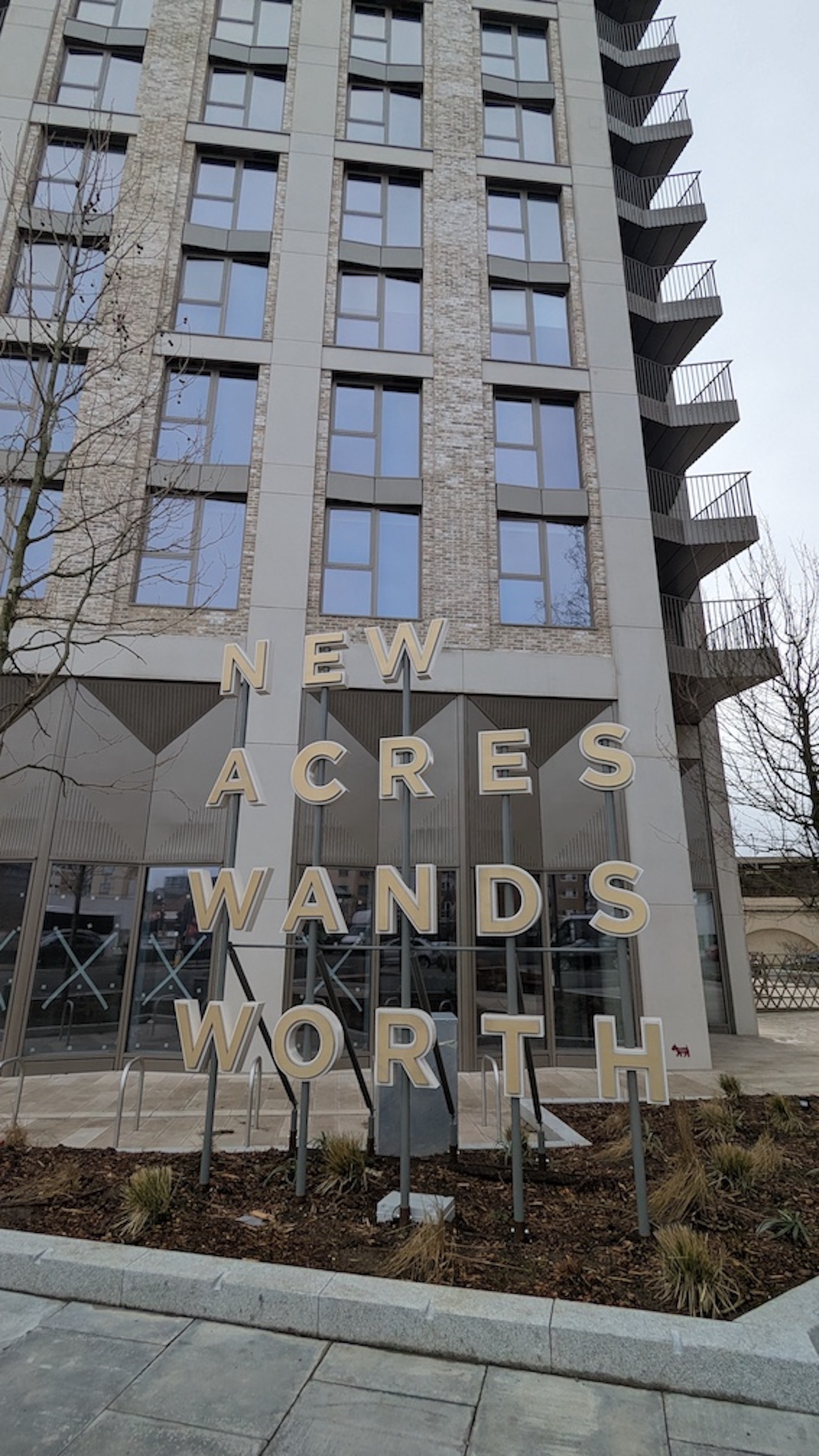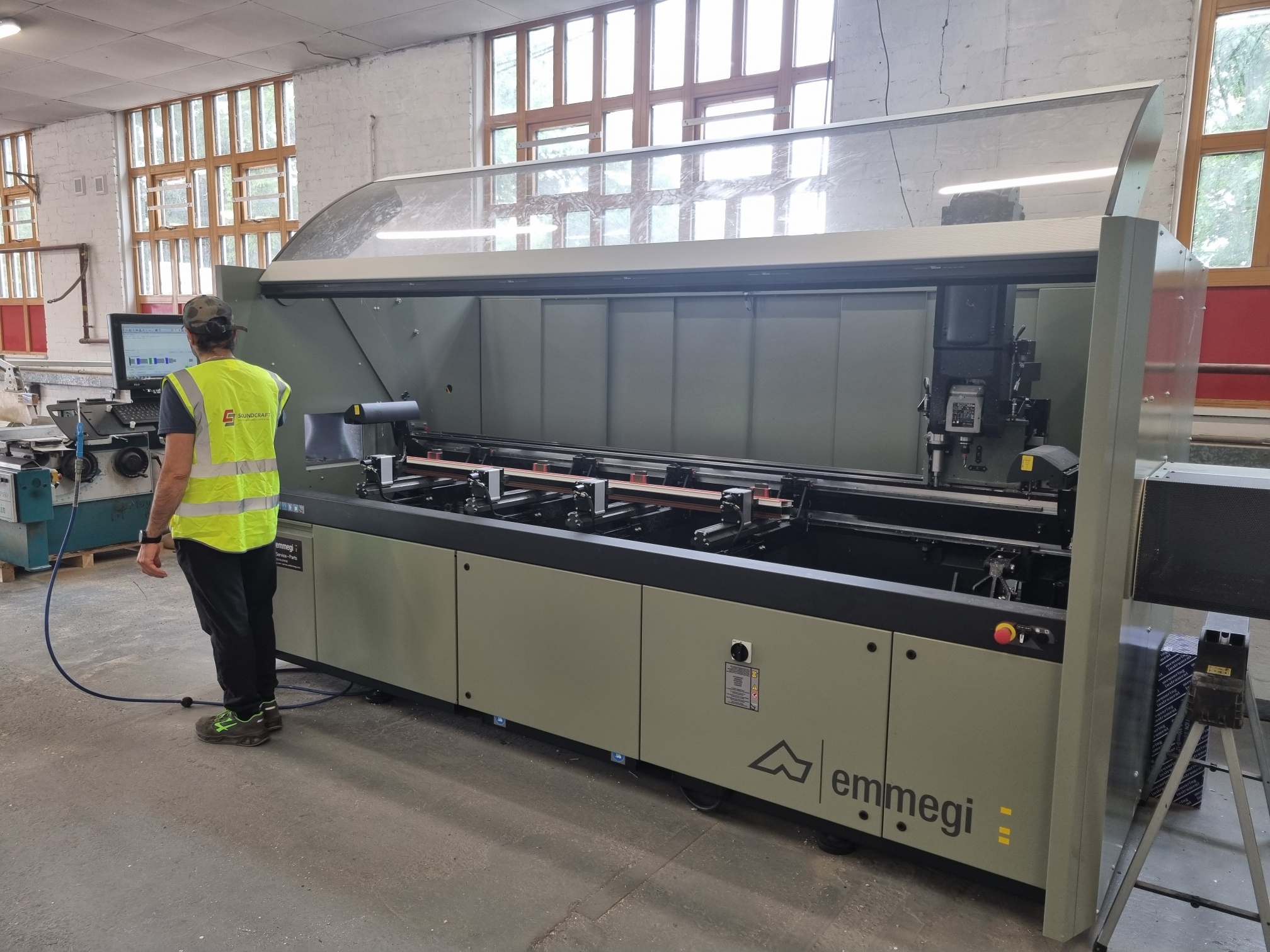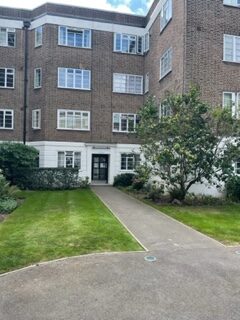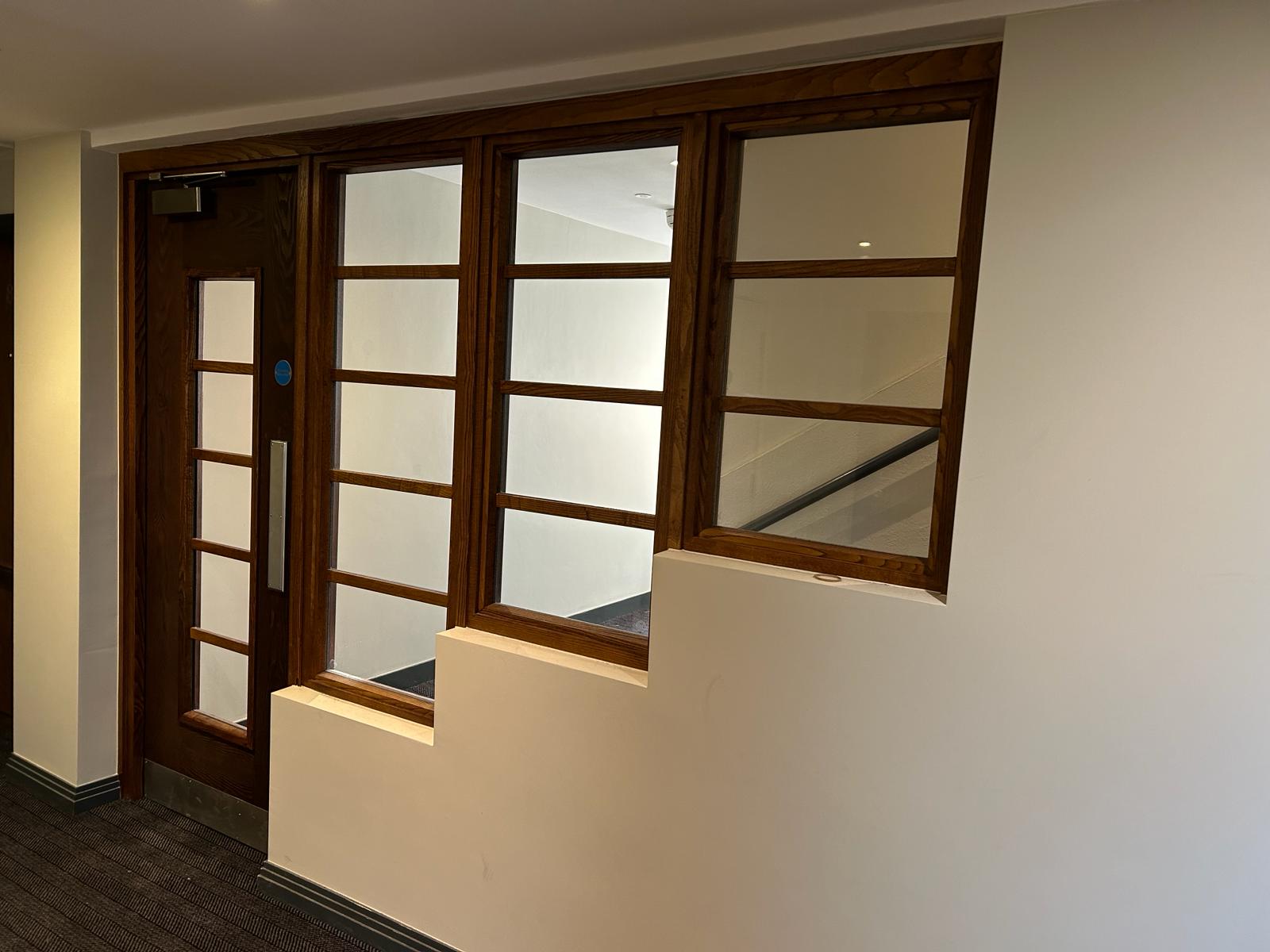If you’re specifying communal security doors (CSDs) for a social housing block of flats, there are many options to choose from and deciding what kind of door to use can seem like a difficult task.
CSDs are generally available in timber, steel and aluminium, and each material offers its own features and benefits. The right choice will depend on the project requirements – so let’s take a closer look at some of the specification considerations for social housing blocks of flats — either new or refurbished — and how each material performs:
Appearance
Timber is a traditional material for doors and it can provide a sense of familiarity. Timber doors tend to be the most aesthetically pleasing option, as they’re more homely. The material can also accommodate decorative features and be finished in a variety of ways. Timber’s design versatility and traditional appearance often make it the preferred choice for conservation areas.
Steel and aluminium CSDs have a more modern appearance with narrower sight lines than timber doors. They usually have a powder-coated finish and there’s a wide range of colours to choose from. Steel and aluminium CSDs are sometimes considered as presenting an institutional appearance. But with the increasing use of curtain walling in new-build social housing, steel and aluminium fully glazed doors can provide a useful visual complement.
Maintenance
Timber doors will normally need to be refinished every three to five years, depending on their exposure to sunlight and weather. Specifiers should also consider issues like timber durability, moisture intake and the effects of UV light on timber doors. However, don’t underestimate how robust timber CSDs can be. They function effectively, even in fairly aggressive areas and if timber is damaged, it’s usually easier and cheaper to repair than other materials.
Steel doors are extremely strong and hard-wearing, mainly due to their welded joint construction. This means they’re more resistant to abuse and are often used in areas where vandalism is a major concern. It is an unfortunate fact that vandalism needs to be considered when specifying CSDs – or any aspect of a building. However, it’s also critical for ensuring that the door will be able to perform adequately, even in particularly difficult environments.
It is important that any damage to powder coated finishes on steel is treated as soon as possible. Rust may become an issue if this is not done swiftly. Galvanising can prevent the problem and is recommended for applications near the sea. Although damage is rare, repairing steel doors tends to be difficult and expensive.
Aluminium CSDs are typically manufactured with mechanically formed joints, which are not as strong as welded constructions. Nevertheless, they offer impressive degrees of resistance to abuse and general wear and tear. The powder coated finish on aluminium CSDs can be guaranteed for 25 years.
Generally, the maintenance of CSDs — whether timber, steel or aluminium — should focus on the ironmongery and glazing, which are the aspects most frequently subjected to intentional abuse or high levels of usage.
Clearly, this puts the onus on specification so that these elements are best considered. Closers, locks and hinges should be maintained in accordance with manufacturer’s recommendations. (Glazing is discussed below.) Planned maintenance is the best way to minimise faults with CSDs, although swift, responsive maintenance is essential if the integrity of the entrance system is to be preserved.
Security
Most new-build projects use steel or aluminium CSDs in order to meet Secured by Design (SBD) requirements.
SBD is a scheme that was created to ‘design out crime’ and it provides guidance for physical security in new dwellings. To gain SBD approval, a CS doorset manufacturer must have its products successfully tested in accordance with the standards prescribed by SBD.
If a door doesn’t need to conform to SBD, something common in refurbishment projects, then timber is frequently used. There’s no reason why a timber CSD couldn’t be made to meet SBD requirements, but there’s just little demand for it. In new-build projects, metal doors are the preferred choice.
As a general rule, a CSD covered by an SBD licence will satisfy most social housing new-build requirements.
Sustainability
Timber is the most environmentally friendly option and specifiers can select FSC® third-party certified materials to ensure the wood comes from a sustainable source.
Aluminium doors can be recycled, making it another environmentally friendly option. Steel, however, can be difficult to recycle.
Glazing
Glazing is a vital component of CSDs.
Vision panels in doors serve the obvious, but vital, purpose of allowing visibility through the door from both sides.
If you want a CSD that meets SBD requirements, glazing shouldn’t be a problem. An SBD door will have passed the tests with the glazing installed. Whilst the minimum glass standard required by SBD is generally adequate, in certain robust environments, the security performance of the glazing can be enhanced if needed.
Something else to think about when it comes to a CSD’s glazing is its thermal efficiency. In most cases, this should not interfere with SBD, but the best way to approach this is to ensure the basic SBD specification is retained, and then build on that with thermally efficient glazing.
Lifespan
It would be convenient if there was a typical lifespan for each type of CSD. However, there are too many variables to accurately predict how long a door will last, such as usage, vandalism, climate and exposure.
A door — and all of its components — needs to be correctly specified to ensure that it is suitable for the environment in which it’s being installed. If the specification is correct, then any CSD should last for many years, whether it’s made from timber, aluminium or steel. If the specification is inadequate, even the most robust unit could fail after just a few months.
To find out more about Soundcraft’s communal security doors, or to discuss your project in more detail, please get in touch on 0800 988 1875.

